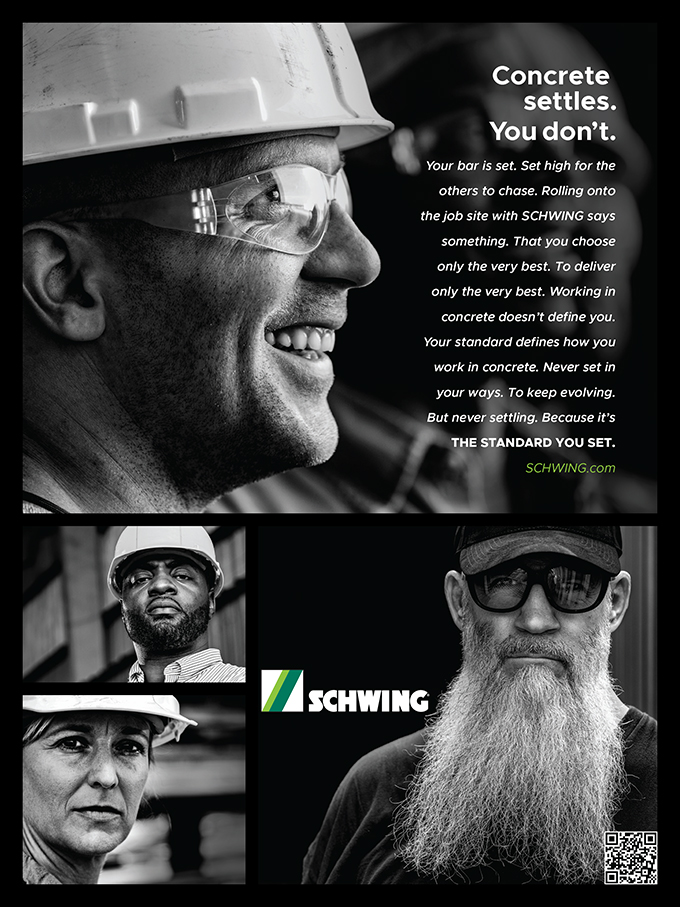THE UN-COMFORT ZONE
This month we feature another article by the talented author, Robert Wilson. Writer of The Un-comfort Zone, Mr. Wilson is always able to convey a message of focus, growth and sensibility that can be applied to each of our businesses. What is your company doing to educate key individuals? What steps is your company taking to educate all personnel?
World of Concrete has come and gone once again. The CFA Annual Convention for 2011 is nearly upon us and the CFA is looking ahead to the next fiscal year. There are a great many opportunities for you to make a difference in your company through education that is specifically generated to and for your company, you as a residential foundation contractor.
The CFA Management Committee encourages you to read this article and think about your commitment to education and continually improving the ability for your company to compete in the elite. Among many other ways this can happen, CFA Company Certification demonstrates and maintains a quality assurance of that commitment to excellence described by Mr. Wilson.
Change Please
“Security is mostly a superstition. It does not exist in nature, nor do the children of men as a whole experience it. Avoiding danger is no safer in the long run than outright exposure. Life is either a daring adventure, or nothing.”
These are the words of the woman who became the poster child for overcoming adversity. A woman who was isolated into the two dimensional world of touch and smell at the age of 19 months. Yet, she went on to inspire millions around the world. Sightless and deaf, Helen Keller resolved to make something of her life. She lived with a keen understanding that change is inevitable, but growth is intentional. Unwilling to give in to her blindness, she chose to strive for a normal life.
Motivation is all about motion or movement. In other words, if you are comfortable, if you are happy and content, then you DO NOT move. You do not change. Why would you? On the other hand, if you are uncomfortable, if you’re unhappy, then you want to change. You want to move back toward your comfort zone. ! ere are millions of motivators in the world and all of us at any one time is being motivated by a dozen or more: Hunger, Safety, Sex, Love, Enlightenment to name just a few.
Interestingly, you can take all those motivators and boil them down to a variation of two basic emotions: Fear and Desire. You are either moving toward something you desire; or you are moving away from something you fear.
Fear, however, can become paralyzing and will keep us in one un-comfort zone because we fear the perceived discomfort that comes with change. We fear that change could open a Pandora’s Box of more and scarier changes. I’ve seen it in relationships and in business.
I know a married couple who over the years have drifted apart and their marriage has become stagnant. I know they both desire greater intimacy with the other, but they both fear rejection and so they do nothing.
I know a small business owner who watched his business shrink in the recent recession. His self-esteem is closely tied to his success and his falling income triggered fears of inadequacy. Frozen by fear into doing the same thing over and over again and expecting different results, he has not adapted to the changes going on in his market.
Helen Keller once again has wise words for such situations, “When one door of happiness closes, another opens; but often we look so long at the closed door that we do not see the one which has been opened for us.”
When couples try new things together they actually stimulate the receptors in their brains that invoke the feelings of romance. Taking a class or starting a new hobby together is a great way for couples to renew their feelings for each other and discover a greater depth of intimacy.
For small business owners, a recession is a great time to try out a new idea or innovation. It attracts renewed interest in the business and can even create new customers and open new markets.
The trick is getting comfortable with change a little at a time. Start engaging in simple changes at home. Low risk changes will generate immediate rewards. Here are a few you can make that will help you get into a habit of adapting to change:
If you drink coffee every day, switch to tea for a week. If you always listen to rock music on the radio, switch to country, jazz, or classical for a week. Rearrange one piece of furniture in your house. Read a section of the newspaper that you’ve never read before. Take a continuing education class in a subject not related to your career. Join a hobby group on MeetUp.com. Taste an ethnic food that you’ve never tried before, (as an alternative revisit a food you think you hate).









